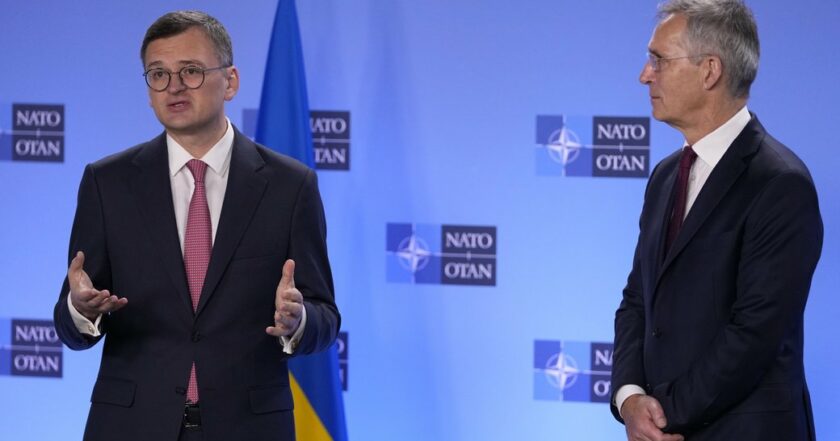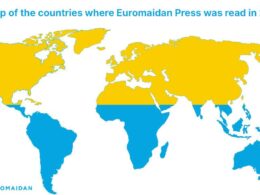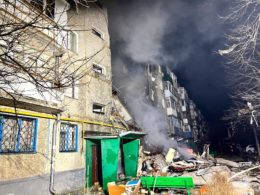On 29 November, NATO Secretary General Jens Stoltenberg announced that Ukraine presented and agreed with allies a program for meeting NATO standards, a European Pravda correspondent reported from Brussels.
The program focuses entirely on security and defense reforms. Unlike previous iterations, it does not include any political or minority rights reforms that Hungary has previously demanded from Ukraine.
Ukraine convinced NATO allies that political and judicial reforms should fall under EU supervision, not NATO, since the requirements are similar anyway.
This means Hungary lost its leverage within NATO to make demands on issues like minority rights.
Ukraine's adapted Annual National Program
Ukraine's adapted Annual National Program on further reforms according to NATO requirements was presented during a meeting of the Ukraine-NATO Council.
"We have agreed on a work program and structure to ensure the implementation of reforms. I highly appreciated the progress of reforms demonstrated by Ukraine," the Secretary-General said.
An official statement by the Ukraine-NATO Council also reports on the program's approval, as “NATO and Ukraine are already working and making decisions together, including on interoperability, energy security, innovation, cyber defense, and resilience."
In particular, the adapted Annual National Program (ANP) sets out key tasks for Ukraine to achieve by the end of 2024. The 9-page document focuses on the security and defense sector in areas such as procurement reform, improving democratic oversight of the armed forces, ensuring effective functioning of procurement agencies, and meeting NATO standards on command and control systems.
According to European Pravda, the ANP “will establish priorities for the reforms that Ukraine has pledged to implement for its future NATO membership.”
In addition, Ukraine convinced NATO allies in Brussels “that it would be best to separate all policy areas – from language and minority laws to anti-corruption efforts and judicial reform – from the ANP and give the EU control over monitoring progress in these reforms. When the EU says that Ukraine meets the necessary requirements, NATO will be guided by this assessment."
This approach has the effect of removing an additional lever of influence from Hungary, which has previously held Ukraine’s NATO aspirations hostage over its demands on minority rights.
By keeping the ANP narrowly focused on defense capabilities, Ukraine ensured that Hungary and other countries cannot obstruct its NATO accession by making extraneous political demands. The evaluation will be focused squarely on whether Ukraine meets specific defense and military benchmarks.
NATO formally approving Ukraine's self-declared ANP also means Hungary did not have a chance to insist on including its demands in the program. The adapted ANP is a deal between NATO as a whole and Ukraine.
However, while the ANP may streamline Ukraine’s path to membership whenever NATO is ready to offer an invitation, the cautious positions of Washington and Berlin remain unchanged.
“The key political obstacle to this continues to be the stance of Berlin and Washington. And unfortunately, there is no positive news here,” the European Pravda correspondent from Brussels said, citing his sources.
As reported by Euractiv, NATO members have still not reached an agreement on whether the reforms set out in the updated Annual National Programme are the conditions under which Ukraine may join NATO, or whether they are a tool to bring Kyiv closer to the Alliance, several NATO diplomats said.
Recently, in October 2023, NATO denounced “in the strongest terms” Russia’s “unprovoked and brutal” war on Ukraine, a new resolution “Delivering on the Vilnius Summit Decisions: Accelerating NATO’s Adaptation, Supporting Ukraine” adopted at an annual session of the NATO Parliamentary Assembly in Copenhagen, says.
The Assembly condemned targeting population centers and civilian infrastructure, including strikes on food storage and transportation facilities, war crimes, crimes against humanity, and reported acts of genocide in illegally occupied territories of Ukraine committed by the Russian state which “under its current regime is a terrorist one,” the resolution says.
In addition, members of the NATO Parliamentary Assembly have stated they are convinced that Ukraine’s membership of NATO “is the best way to deter future Russian aggression,” adding that “Ukraine’s Euro-Atlantic integration would contribute to Allied collective defense.”
Read also:
- Reuters: US companies get $ 27 bn in investments for arming Ukraine
- Reuters: North Korea increases trade with Russia via Rason special economic zone
- British intel: Russia increases use of 500kg cluster munitions





